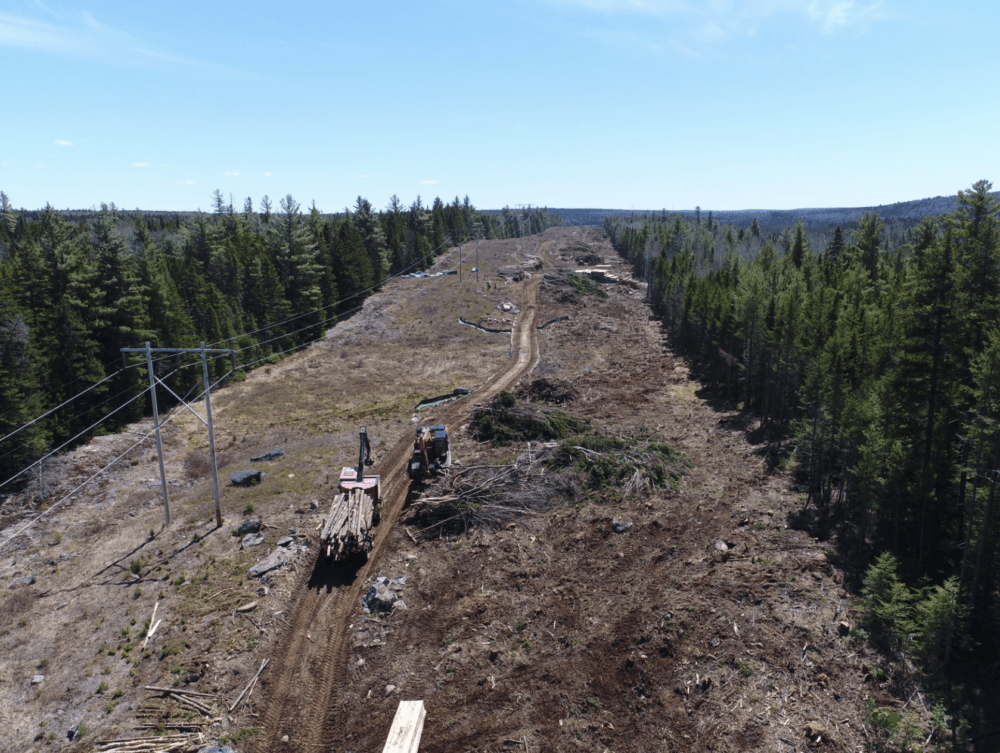Advertisement
Maine's high court rules that voter referendum blocking power corridor was unconstitutional

Maine's highest court has struck a blow against the campaign to prevent Central Maine Power from building a high-voltage transmission line through western Maine, ruling that a Nov. 2021 referendum was likely unconstitutional.
Last fall, CMP and its partners were forced to halt construction of the New England Clean Energy Connect transmission line in Maine after voters approved the referendum essentially blocking the $1 billion project. But in a decision released late Tuesday morning, Maine's Supreme Judicial Court ruled that a key portion of that ballot question would violate the developers’ “constitutionally protected vested rights” by retroactively imposing new requirements after a key permit had been issued.
But the Law Court made clear that NECEC’s right to proceed with the project “would not be absolute” and, instead, sent the issue back down to a lower court for further explanation.
CMP and its partners in the NECEC project claim they had “vested rights” to continue with construction, despite the Nov. 2021 vote, because they had spent nearly $450 million by the time Maine voters went to the polls. But project opponents have said that the developers undertook that work at their own financial risk, knowing that the permits were being strongly contested in both Maine’s regulatory agencies and in the courts.
It will be up to NECEC’s developers to prove “by a preponderance of evidence” that the construction was done “in good-faith reliance” based on key permits issued before the Nov. 2021 referendum.
“To be clear, we do not decide whether NECEC performed substantial construction in good faith according to a schedule that was not created or expedited for the purpose of generating a vested rights claim,” the court wrote. “Although it appears from the limited record developed in connection with the request for preliminary injunctive relief that NECEC did so, it is up to the trial court to make those factual determinations on remand.”
CMP and its partners want to build a 145-mile transmission line through Maine that would allow Hydro-Quebec to feed electricity into the New England power grid as part of a renewable energy purchase agreement between the Canadian company and the state of Massachusetts. But opponents contend the project will permanently damage the ecology along the corridor route through western Maine and would also harm outdoor recreation without making a substantial dent in emissions of greenhouse gases.
Nearly 60% of voters approved the referendum in Nov. 2021 that, among other things, prohibits “high impact transmission lines” from being built in the Kennebec River valley. The ballot initiative also retroactively required the Legislature to approve — by a two-thirds majority in both the House and Senate — a lease that NECEC obtained to pass through state-owned land near The Forks.
The court did not rule on a second case challenging NECEC’s lease through that public land.
This story is a production of the New England News Collaborative. It was originally published by Maine Public.